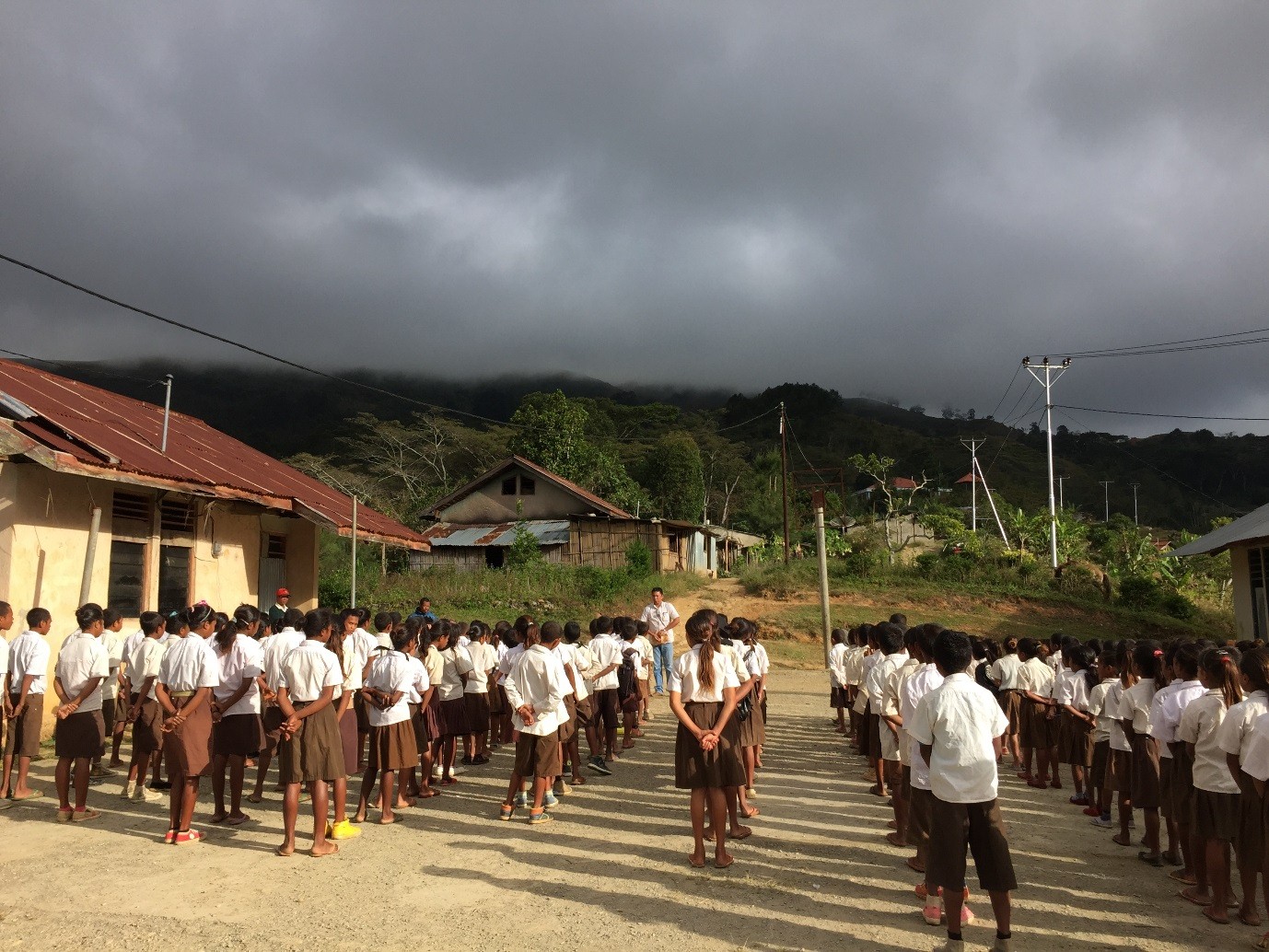(S)WASH-D for WORMS
The (S)WASH pilot study is investigating the differential impact of school- and community-based deworming and WASH programs on STH infections in Timor-Leste. The pilot project represents Phase 1 of the study to establish 'proof of principle' in preparation for Phase 2, a definitive full-scale cluster RCT.
Project status
Content navigation
About

The current WHO strategy for control of soil-transmitted helminths (STH) is school-based drug treatment focusing on school-age children. This is highly effective in reducing morbidity, but rapid reinfection occurs without reduction in environmental contamination. Provision of water, sanitation and hygiene (WASH) programs is critical in the sustainable control of STHs, and both school- and community-based WASH programs have been shown to reduce infection rates. Recent modeling has raised questions about WHO guidelines, demonstrating limited impact of school-based interventions on community health and STH transmission.
The (S)WASH pilot study is investigating the differential impact of school- and community-based deworming and WASH programs on STH infections in Timor-Leste. The study aims to test the hypothesis that a community-based STH control program (consisting of mass chemotherapy integrated with a WASH intervention), is more effective at reducing the burden of STH infection in school-aged children than a similar program implemented only at school level.
The pilot study involves children attending six primary schools. Following baseline data collection (including stool samples, questionnaires, anthropometry and haemoglobin levels), a WASH intervention will be implemented by a non-governmental organisation, either for the whole community (three intervention clusters) or only the school (three control clusters). Following the WASH intervention, albendazole will be distributed, at a community level in the intervention clusters and school level in the control clusters. Follow-up data collection will occur six months later.
The pilot project represents Phase 1 of the study to establish 'proof of principle' in preparation for Phase 2, a definitive full-scale cluster RCT.
Partnerships
Funding for this project has been received from the Bill and Melinda Gates Foundation (Grand Challenges Explorations). In this video Dr Nery discusses how the funding will help her achieve a reduction in the rate of worm infections in the region. Click to view video.
In Timor-Leste, ANU works collaboratively with the Ministries of Health, Education and Public Works at both a national and district level. We are also working closely with two partner non-governmental organisations – Plan International and Cruz Vermelha Timor-Leste (Red Cross) – who are implementing the WASH interventions in the intervention and control clusters, respectively.
